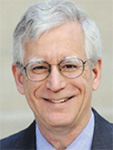
Peter Machinist, the Hancock Professor of Hebrew and Other Oriental Languages at Harvard University, is an expert in the cultural and social history of the ancient Near East. He has done considerable research on group identification and ancient historiography. In his essay “Outsiders or Insiders: The Biblical View of Emergent Israel and Its Contexts,” Machinist considers whether the Bible should be considered when studying Israel’s origins in Palestine.1
What should an historian do with the Bible in the study of Israel’s origins in Palestine? It seems foolish to abandon it—and no one has really done so—because whatever its problems, it still defines the arena within which the nonbiblical data have finally to make sense, by opposition or integration, and wherein, finally, they acquire a specific, concrete historical identity. Moreover, the Bible is the only means at our disposal for determining how Israel remembered and appropriated the experiences of its origins.

